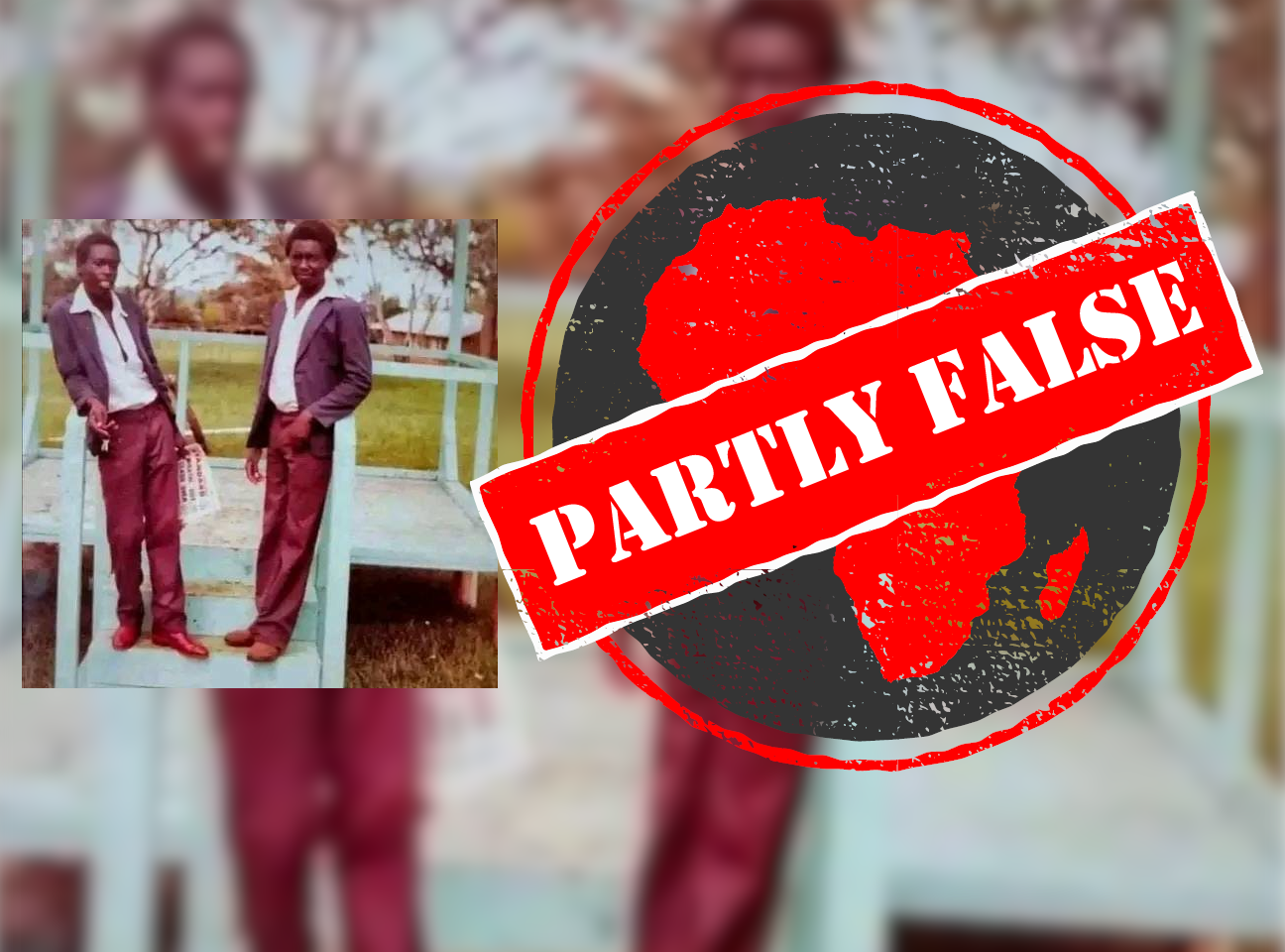IN SHORT: The photo does show Rigathi Gachagua, today’s deputy president of Kenya, with a friend at the University of Nairobi in 1978. But the friend is not new president William Ruto.
A photo showing two young men posing for a photo in matching uniforms is doing the rounds on Facebook.
Facebook users claim it shows a young William Ruto, today Kenya’s president, and new deputy president Rigathi Gachagua at the University of Nairobi.
“Friends for life. Current President William Ruto and his Deputy Gachagua back at university of Nairobi in 1980's,” one caption reads.
The photo and its claim has also been posted here, here, here and here.
Ruto and Gachagua have been close political allies. Together they campaigned for the presidency on the United Democratic Alliance party ticket. Gachagua was Ruto’s running mate in the race for president.
Ruto was declared the winner of the 9 August 2022 presidential election that saw Gachagua become the deputy president.
Both studied at the University of Nairobi. But does the photo show them as young friends at the university? We checked.
Photo shows Gachagua and a friend

Africa Check first came across the photo on 7 August when it was posted by Gachagua on his Facebook account and shared on his Facebook page.
He explained that the image showed him with his former classmate and friend called Simon Maina Guandaru. He posted it alongside a more recent one showing them together.
He said Maina has been his friend “for the last 44 years since nature brought us together in 1978 as classmates from form 1 to 6 at Kianyaga High School”.
The photo does not show a young president Ruto with Gachagua.
Republish our content for free
For publishers: what to do if your post is rated false
A fact-checker has rated your Facebook or Instagram post as “false”, “altered”, “partly false” or “missing context”. This could have serious consequences. What do you do?
Click on our guide for the steps you should follow.
Publishers guideAfrica Check teams up with Facebook
Africa Check is a partner in Meta's third-party fact-checking programme to help stop the spread of false information on social media.
The content we rate as “false” will be downgraded on Facebook and Instagram. This means fewer people will see it.
You can also help identify false information on Facebook. This guide explains how.




Add new comment